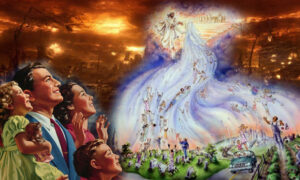The bystander effect, the Stanford prison experiment, and other weird stuff.
The boys drink an experimental beer with backyard hops, then discuss some popular psychology ideas that might not be true.
The bystander effect. The rape and murder of Kitty Genovese created a viral story that promoted the idea of bystander apathy.
The Stanford prison experiment. After normal kids are randomly assigned as prisoners and guards, the guards become abusive and the prisoners became compliant.
The Milgram experiment. People are willing to inflict extreme pain on innocent people if an authority figure urges them on.
In each case, there are profound questions about the legitimacy of the conclusions, but those questionable conclusions are firmly implanted in the public mind.
 What is it, who believes in it, and when is it supposed to happen?
What is it, who believes in it, and when is it supposed to happen?  P&C try to take the measure of a very unmeasured man
P&C try to take the measure of a very unmeasured man  The boys delve into this mysterious, dramatic and somewhat frightening text.
The boys delve into this mysterious, dramatic and somewhat frightening text.  When do they help and when do they hurt?
When do they help and when do they hurt?  Why do we dream, and is there anything to be learned from our dreams?
Why do we dream, and is there anything to be learned from our dreams?